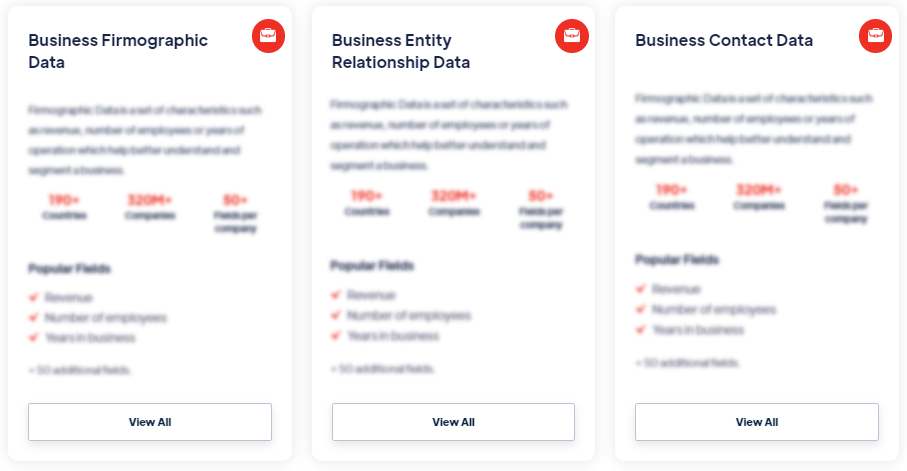Best
Financial Data:
Products
Financial Data refers to numerical or quantitative information related to the financial activities and performance of individuals, organizations, or the overall economy. It includes data such as financial statements, balance sheets, income statements, cash flow statements, financial ratios, market data, and other financial indicators. Read more
Our Data Integrations


Request Data Sample for
Financial Data:

Browse the Data Marketplace

Frequently Asked Questions
1. What is Financial Data?
Financial Data
refers to numerical or quantitative information related to the
financial activities and performance of individuals,
organizations, or the overall economy. It includes data such as
financial statements, balance sheets, income statements, cash
flow statements, financial ratios, market data, and other
financial indicators.
2. Why is Financial Data important?
Financial Data is important because it provides insights into
the financial health, performance, and stability of individuals,
businesses, and economies. It enables decision-making, risk
assessment, financial analysis, and planning. Financial Data is
crucial for various stakeholders, including investors, lenders,
regulators, policymakers, and financial professionals.
3. What types of information are included in Financial
Data?
Financial Data includes various types of information, such as
revenues, expenses, assets, liabilities, equity, profits,
losses, cash flows, market prices, interest rates, exchange
rates, and other financial metrics. It may also encompass
macroeconomic indicators, industry-specific data, and financial
market data.
4. How is Financial Data collected?
Financial Data is collected through various sources and
methods. It can be obtained from financial statements and
reports that organizations are required to disclose, such as
annual reports, quarterly reports, and regulatory filings. It is
also collected from market exchanges, financial databases,
government agencies, surveys, and other data providers.
5. How is Financial Data used?
Financial
Data is used for financial analysis, investment decision-making,
risk assessment, budgeting, forecasting, financial modeling,
performance evaluation, and regulatory compliance. It helps
individuals and organizations understand their financial
position, assess profitability, manage cash flow, evaluate
investment opportunities, and measure financial performance
against benchmarks.
6. What are the challenges associated with Financial Data?
Challenges associated with Financial Data include data quality
issues, data consistency across different sources, data
accessibility, data privacy and security concerns, complexity in
data integration and consolidation, and the need for data
interpretation and analysis skills. Additionally, financial data
can be influenced by various external factors, making it
essential to consider the broader economic and market context.
7. What are the benefits of analyzing Financial Data?
Analyzing Financial Data provides valuable insights for
decision-making and strategic planning. It helps identify
trends, assess financial performance, evaluate investment
opportunities, manage risks, make informed business decisions,
and comply with regulatory requirements. Financial Data analysis
also contributes to economic forecasting, policy formulation,
and the overall stability and efficiency of financial markets.
